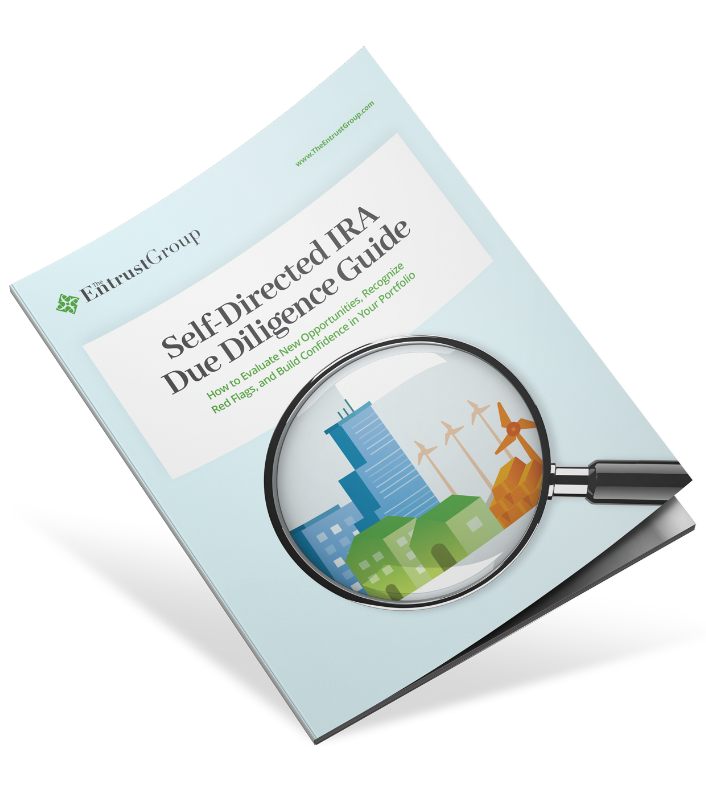5 Types of Due Diligence

Estimated reading time: 6 minutes
Don’t take a leap of faith – take a leap of informed, calculated risk.
How? With comprehensive due diligence.
This essential investment process serves as the backbone of savvy decision-making. It encompasses far more than a simple financial review. To conduct proper due diligence, you need to dive deep into all critical aspects of a business, identifying potential upsides and challenges.
Many investors view due diligence as one of their most potent skills. Their attention to detail allows them to identify undervalued offerings and steer clear of fishy investments.
In this blog post, we’ll explore five different types of due diligence, including legal, operational, and environmental considerations.
As you’re conducting due diligence, remember to leave no stone unturned, from the fine print in the company’s foundational documents to each competitor in the market landscape.
Table of Contents
- Financial Due Diligence
- Legal Due Diligence
- Operational Due Diligence
- Commercial Due Diligence
- Environmental Due Diligence
- Benefit From Your Due Diligence Investigations
1. Financial Due Diligence
Every deal starts and ends with the balance sheet.
Financial due diligence critically examines a company's financial data, identifying potential risks and opportunities. This process is key in mergers, acquisitions, and private equity investments.
One infamous example of the importance of financial due diligence came in 2000 at the height of the Dot-com bubble:
America Online (AOL) merged with Time Warner in a deal valued at $350 billion, one of the largest mergers in history. However, the move proved disastrous as AOL's business model was based on dial-up internet subscriptions, which were becoming obsolete with the rise of broadband internet.
Additionally, AOL's inflated stock price at the time of the merger masked its underlying financial weaknesses. The combined company struggled with integration issues, cultural clashes, and a sharp decline in stock value. This led to substantial losses for shareholders.
As you’re conducting financial due diligence, consider these core strategies:
- Assessment of Financial Statements: Analyze balance sheets, income statements, and cash flow statements to understand the company's financial health and operational efficiency.
- Working Capital Analysis: Review operational liquidity through accounts receivable, inventory levels, and short-term obligations to spot any cash flow challenges.
- Debt and Liabilities Review: Investigate all debts and potential liabilities, including those not immediately visible on the balance sheet, to gauge future financial commitments.
- Tax Compliance and Liabilities: Check the company's tax returns and disputes to identify any outstanding obligations or compliance risks.
- Earnings Quality: Assess the sustainability of earnings by identifying and adjusting for non-recurring revenues or expenses.
- Forecast and Projections Review: Evaluate the company's financial projections against realistic assumptions and industry benchmarks.
2. Legal Due Diligence
Some companies are clean as a whistle; some are a ticking time bomb.
Legal due diligence critically assesses a company's legal foundation and identifies any potential legal liabilities that may come home to roost.
One notable example of the importance of legal due diligence came in 1998: Daimler-Benz acquired Chrysler to form DaimlerChrysler AG. The parent company later faced significant legal challenges, including a class-action lawsuit, due to the acquisition. Individuals exposed to asbestos in Chrysler vehicles sued, leading to costly settlements and years of legal battles for DaimlerChrysler.
Legal due diligence encompasses dozens of different essential practices; here are a few of the most important:
- Review of Documents and Contracts: Analyze foundational documents, agreements with partners, and other legal contracts to verify their validity and identify any unfavorable terms.
- Litigation History: Evaluate past, present, and potential legal disputes to assess liabilities and their impact on the company's reputation and financial health.
- Legal Compliance: Confirm that the company adheres to laws and regulations across employment, environmental standards, antitrust laws, etc., to spot any violations that could lead to legal penalties.
3. Operational Due Diligence
If a company has a robust, efficient operational structure, it may command a higher valuation.
Operational due diligence scrutinizes a company's core operations and infrastructure to assess their efficiency, scalability, and alignment with strategic goals. This process aids investors and acquirers in understanding a business's operational health and potential challenges that could impact its value and performance.
For a positive example of the benefits of operational due diligence, look to Amazon’s acquisition of Whole Foods in 2017.
Before the near $14 billion purchase, Amazon conducted thorough assessments of Whole Foods' supply chain, distribution network, store operations, and technology infrastructure. By leveraging its expertise in logistics and technology, Amazon streamlined the shopping process to fortify the strength of each brand.
Here are few of the key areas to inspect as you conduct operational due diligence:
- Operational Systems: Review company processes to gauge productivity and adaptability.
- Supply Chain Management: If necessary, assess the supply chain for efficiency and disruption risks by examining logistics, inventory management, and supplier relationships.
- IT Infrastructure: Consider the technology systems for robustness, security, and support of operations.
- Employee Capabilities: Analyze the skills of the workforce and leadership to determine alignment with operational needs.
4. Commercial Due Diligence
Product-market fit is everything.
Commercial due diligence assesses a target company's market dynamics, competitive position, customer base, and growth potential. This process helps investors gauge the viability and potential performance of an offering by examining external market factors.
Need an example of the benefits of commercial due diligence and calculated risk?
In the 1960s, American Express faced a financial crisis due to a scandal involving fraudulent activities by a subsidiary. Despite the negative publicity, Warren Buffett saw the value in American Express's brand, its strong customer base, and its competitive advantages in the financial services industry.
Buffett conducted extensive research into American Express's operations, market position, and long-term prospects before investing a significant portion of Berkshire Hathaway's portfolio in the company. His commercial due diligence paid off. American Express recovered from the scandal and continues to thrive, generating substantial returns for Berkshire Hathaway shareholders.
As you’re conducting commercial due diligence, here are a few fundamental factors to consider:
- Market Environment: Analyze market size, trends, and sustainability to assess consumer demand and long-term viability.
- Competitive Positioning: Evaluate the company's market share and competitive advantages to understand its standing among competitors.
- Existing Customer Base: Review customer loyalty and satisfaction to determine revenue reliability and expansion potential.
- Growth Prospects: Identify if there are any untapped opportunities for business model scalability, market expansion, and innovation.
5. Environmental Due Diligence
In 2024, if an offering is not environmentally sustainable, it may not be commercially sustainable.
Environmental due diligence evaluates environmental risks, compliance, and sustainability practices of a property or business, playing a crucial role in protecting investments and ensuring eco-friendly operations.
One infamous example of the necessity of environmental due diligence came in 2015 with the Volkswagen emissions scandal.
In 2015, the German car manufacturer admitted to installing illegal software in its diesel vehicles to cheat on emissions tests. The scandal resulted in fines, legal actions, and a significant loss of trust among consumers and investors. Volkswagen's reputation was tarnished, leading to a 20% decline in profits and over $30 billion freefall in market capitalization.
Here are a few core components to consider in your environmental due diligence investigations:
- Environmental Regulations Compliance: Assess the company's conformity to environmental laws, identifying any past violations or areas of potential non-compliance.
- Potential Liabilities: Investigate whether the company has any history of hazardous materials or contamination on the property, essential for understanding cleanup responsibilities and legal risks.
- Established Sustainability Practices: Review the company's efforts towards sustainable operations, such as resource conservation and renewable energy use.
Benefit from Your Due Diligence Investigations
Due diligence isn’t simply for steering clear of fishy investments.
If you’re thorough in your process and ask essential questions, you may discover an offering that is significantly overvalued or undervalued. This can be vital in helping navigate negotiations and securing the best price for your portfolio.
To equip yourself with additional knowledge and tools, download our Due Diligence Guide. Inside, we’ve included asset-based due diligence checklists and red flags to look out for as you evaluate real estate, private equity, and precious metals opportunities.

Self-Directed IRA Due Diligence Guide
Remember, if you’re uniquely skilled at exercising due diligence, you may be able to spot hidden gems better than the competition. However, most IRAs and 401(k) plans limit their investment options to publicly traded securities. In these heavily-scrutinized markets, it’s much more difficult to spot a diamond in the rough.
In the private markets, there are much fewer analysts combing through every potential offering. While these opportunities present higher risks, they also may offer greater rewards.
To benefit from your due diligence skills with your IRA or 401(k) funds, you need a self-directed IRA (SDIRA).
With this type of investment account, you can invest your retirement funds in any asset the IRS allows, including startups, small business, and real estate opportunities. If you have an eagle eye for undervalued offerings, you may be able to generate a higher rate-of-return. Plus, you still benefit from all of the tax advantages that come with a traditional or Roth IRA.
Interested in whether an SDIRA is right for you? Download our SDIRA Basics Guide. There, we’ve outlined exactly what an SDIRA can and cannot invest in. Plus, you’ll find a step-by-step walkthrough to open your account, fund it, and start investing.
Or, if you’re looking for more due diligence tips and strategies, check out our growing library of due diligence articles in the Learning Center.




























0 Comment